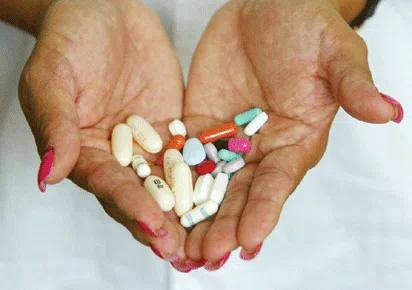Nigeria’s healthcare system is currently facing severe challenges amid rising economic turmoil, with skyrocketing living costs making access to essential medical care increasingly difficult for the average citizen. As prices for medications, laboratory tests, and healthcare services surge, many Nigerians find it nearly impossible to afford treatment.
The disparity in healthcare access is stark: while some can afford world-class medical facilities, millions struggle with basic healthcare needs. The situation has particularly impacted vulnerable populations, including pregnant women, children, and those with chronic illnesses. Many families are now forced to choose between food and medicine, leading to tragic stories of patients being turned away from hospitals or resorting to traditional healers and self-medication.
Real Stories of Struggle:
- Olayinka Ade, a mother of three, faced a heartbreaking choice when she was turned away from a Lagos State hospital due to her inability to pay the N3,000 fee for a hospital card. With two of her children suffering from high fever and another with chronic asthma, she described the financial strain as pushing her to the brink of ruin.
- Faziyat, a school teacher and widow, can no longer afford her diabetes medication, stating that her monthly salary of N30,000 barely covers her family’s basic needs. She has resorted to relying on a “miracle plant” to manage her condition.
- Joseph Eke, who has been on hypertension medication for over six years, has had to stop taking his drugs due to rising costs, relying on support from friends who are now also facing financial struggles.
Pregnant Women at Risk:
The crisis extends to expectant mothers. Mrs. Faustina Imeh nearly lost her twins when she was unable to pay for a caesarean section (CS) after complications arose during labor. The family struggled to raise the necessary funds, leading to severe delays that could have had fatal consequences.
In another case, Aisha Azeez experienced complications during pregnancy and was unable to afford the N320,000 required for her CS, resulting in the loss of her child.
These personal stories reflect a broader trend: many Nigerians are prioritizing immediate needs over long-term health, exacerbating public health challenges across the country. The rising costs of medical care, combined with limited access to quality facilities—especially in rural areas—have led to a public health crisis characterized by treatment abandonment. Patients in need of surgery and treatment for common conditions like asthma, diabetes, hypertension, malaria, and typhoid are particularly affected.
Experts are calling for urgent, comprehensive action to address the crisis and ensure affordable, quality healthcare for all Nigerians.

